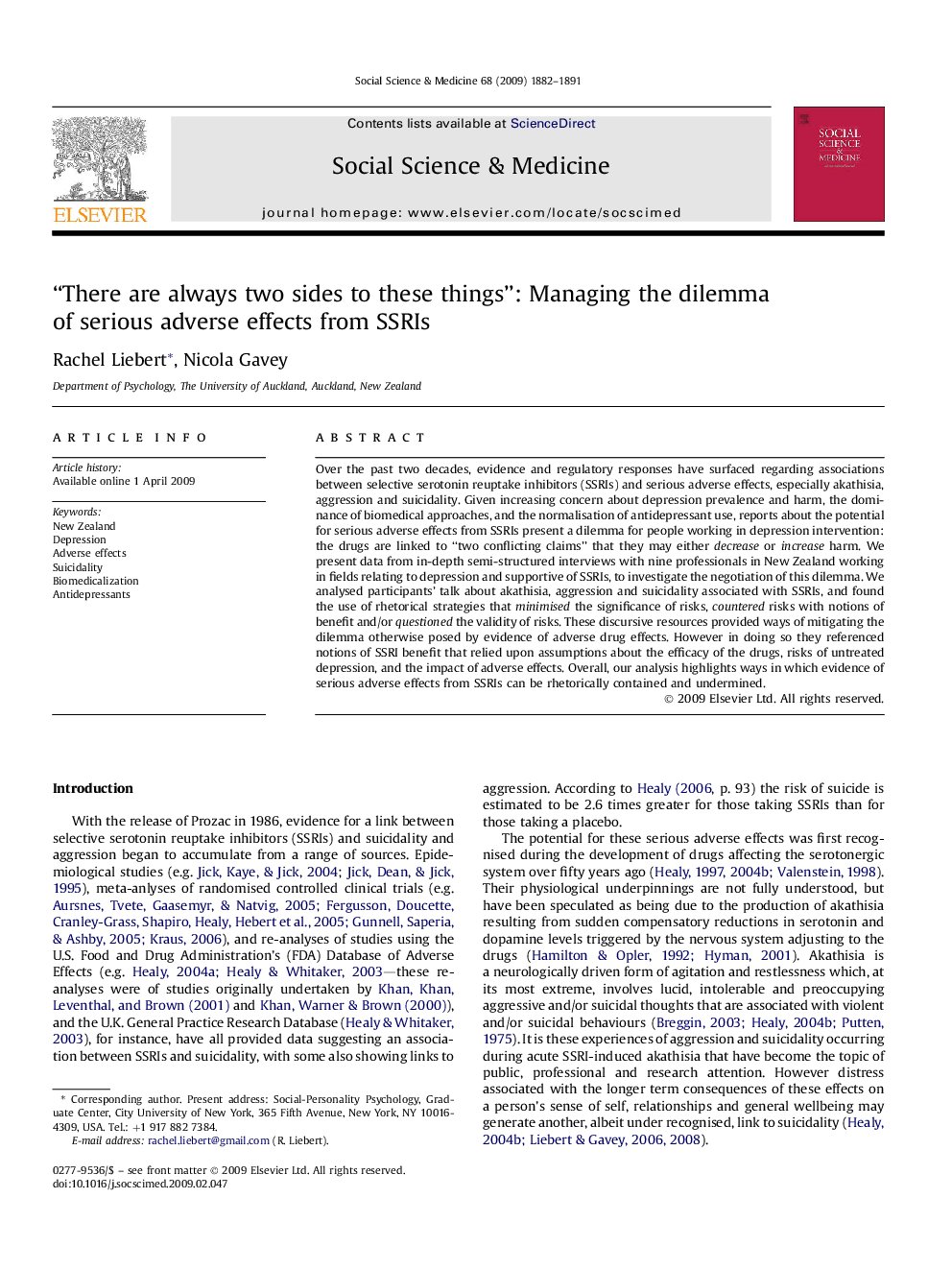| Article ID | Journal | Published Year | Pages | File Type |
|---|---|---|---|---|
| 953619 | Social Science & Medicine | 2009 | 10 Pages |
Over the past two decades, evidence and regulatory responses have surfaced regarding associations between selective serotonin reuptake inhibitors (SSRIs) and serious adverse effects, especially akathisia, aggression and suicidality. Given increasing concern about depression prevalence and harm, the dominance of biomedical approaches, and the normalisation of antidepressant use, reports about the potential for serious adverse effects from SSRIs present a dilemma for people working in depression intervention: the drugs are linked to “two conflicting claims” that they may either decrease or increase harm. We present data from in-depth semi-structured interviews with nine professionals in New Zealand working in fields relating to depression and supportive of SSRIs, to investigate the negotiation of this dilemma. We analysed participants’ talk about akathisia, aggression and suicidality associated with SSRIs, and found the use of rhetorical strategies that minimised the significance of risks, countered risks with notions of benefit and/or questioned the validity of risks. These discursive resources provided ways of mitigating the dilemma otherwise posed by evidence of adverse drug effects. However in doing so they referenced notions of SSRI benefit that relied upon assumptions about the efficacy of the drugs, risks of untreated depression, and the impact of adverse effects. Overall, our analysis highlights ways in which evidence of serious adverse effects from SSRIs can be rhetorically contained and undermined.
